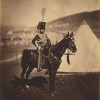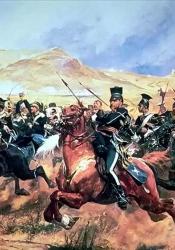Balaklava, Russia +
In this part of the story, Seacole ended up having a hard life in Balaklava. From there, Seacole ended up procuring the Turks from the Turkish Pacha, and would end up deciding to help out the Pacha by acting like some sort of Ambassoder. She would later meet up with the Turkish Pacha, which was said to have laid the foundation of a lasting friendship. Indeed the Pacha and her got along together, "The Pacha's great ambition was to be familiar with the English language, and at last nothing would do but he must take lessons of me" (pg. 98). It was an interesting moment in this story since we don't often see friendships like this being made in the story.
Seacole, Mary. Wonderful Adventures of Mrs. Seacole in Many Lands, Penguin Classics. 1857. (pg. 98)
Coordinates
Longitude: 30.278187300000


